Who We Are
Our Sensing Journey
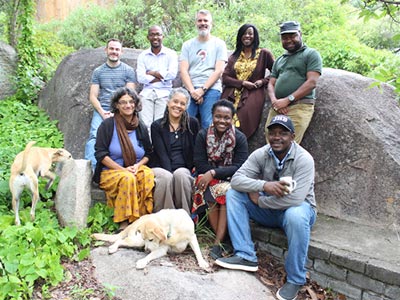
The Journey Begins
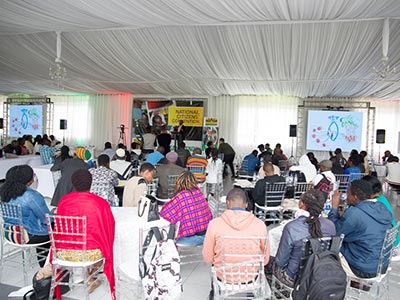
Listening
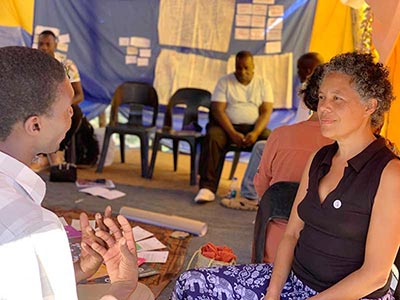
Deep Dialogue Interviews
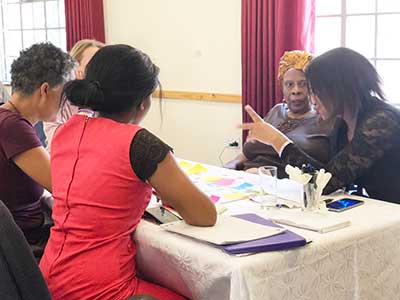
Systems Mapping 2 Day Workshop
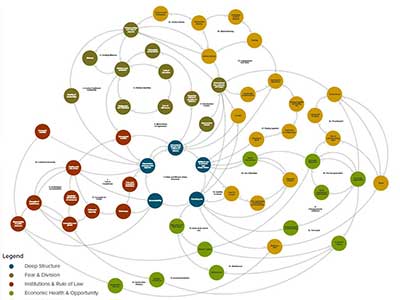
Gateway Zimbabwe's Systems Map
THE DEEP STRUCTURE
What we call the Deep Structure of our systems map is the premise for our diagnosis of where we are as a nation and the Gateways we have to offramp from some of the cyclings across generations.
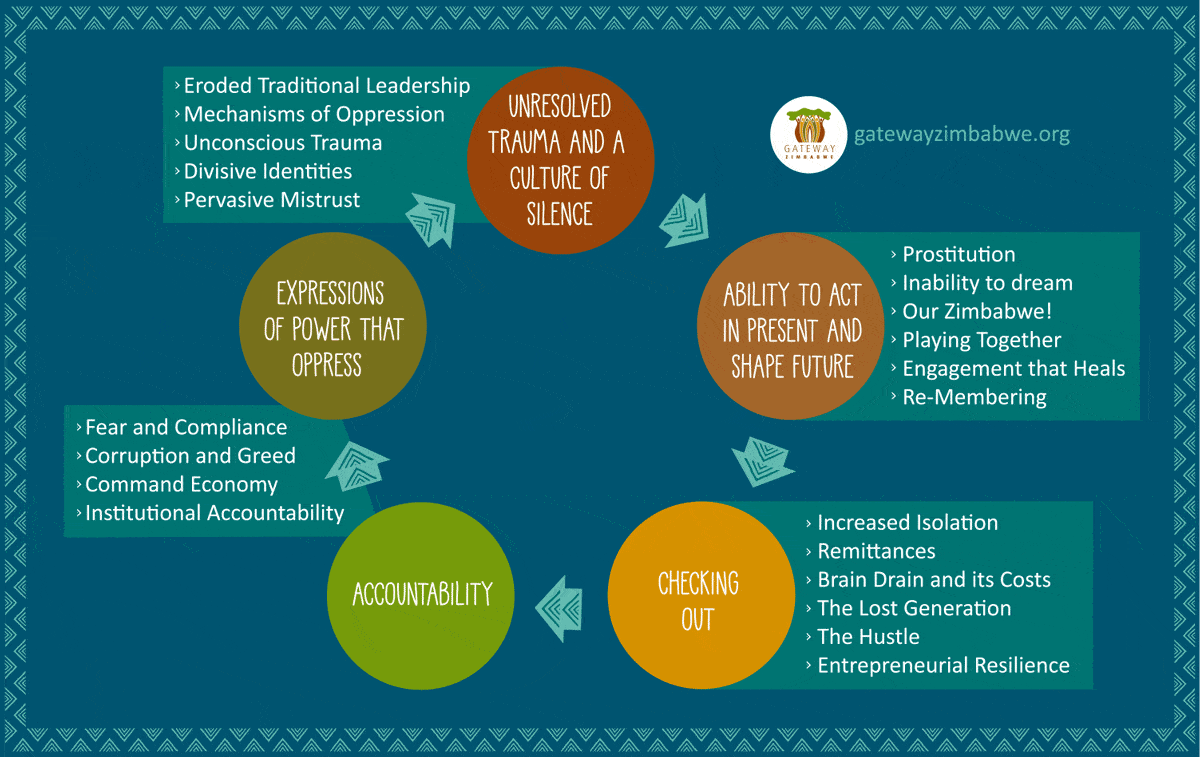
As a nation, Zimbabwe has a long history of state-sanctioned violence, dating far back to the Pre-colonial and Colonial State, the Liberation War and Post-Colonial political violence. This has left us with a huge knot of unresolved trauma as a nation and a residual culture of silence springing from fear of speaking the truth.
This trauma and constant threat of violence hinders our ability to act in the present and to shape the future. We are like rabbits frozen in the headlights. As a result, many people are checking out – they are no longer engaging with the system, nor with community. This “checking out” takes different forms – from youths ‘just sitting’, to substance abuse, to the creation of parallel systems and migration – both formal and informal. There is a tendency to only look after and care about ‘self’ and a subsequent reduction in accountability – in terms of holding elected officials, government, our own family members and even ourselves to account. This lack of accountability leads to a pervasive culture of impunity and corruption. This allows expressions of power that oppress in an effort to maintain this status quo – in families, schools, public institutions, and at state level. The continual oppressive power feeds the cycle of unresolved trauma and the culture of silence. This is the narrative underlying our social fabric as a nation.
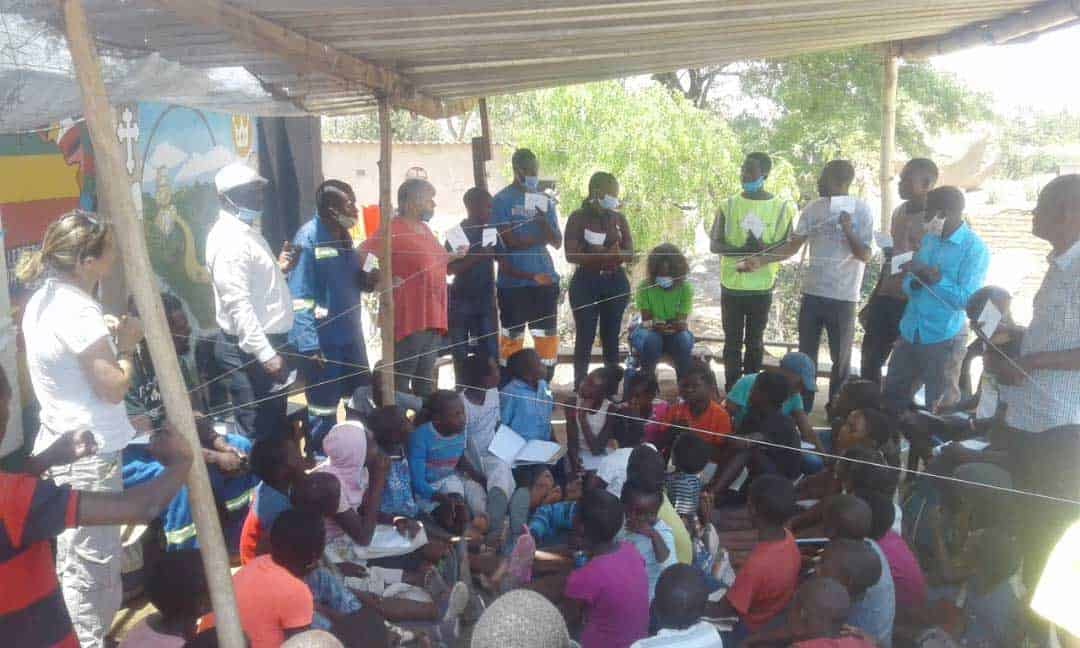
As part of the systems mapping process, we hosted another two-day process to identify leverage points within the system with the same 50 participants, to identify the areas which were frozen, and which areas had energy and could have a ripple effect in offsetting the downward spiral. From this analysis the Gateway Zimbabwe partners identified three leverage areas to anchor our theory of change for reweaving the social fabric based on a meta relational theory of change where authentic, inclusive and generative relationships are core to any intervention.
The leverage points center on three core areas,
which cut across all our programming:
Safety
Creating safe spaces for community dialogues which are generative and use new methods of bringing people together across domains, generations and communities.
Community
Bringing civic communities together around the emotive love for country that so many identified as being a unifying factor, to organize and mobilize for generative responses to community challenges.
Economy
Creating an enabling space for young people around economic opportunities to re-engage and “check-in” to their communities and society at large.


